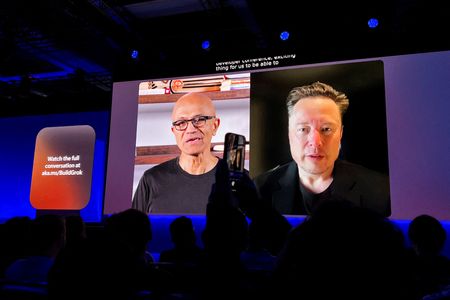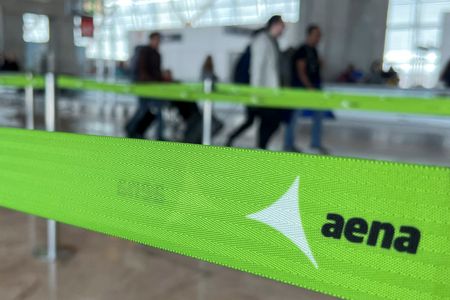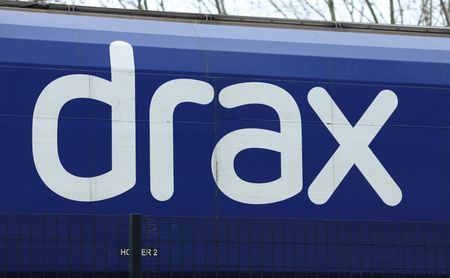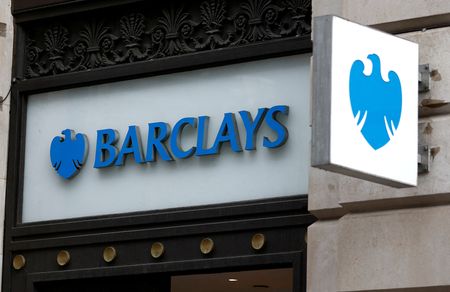By Stephen Nellis
SEATTLE (Reuters) -Microsoft said on Monday it would offer new AI models made by Elon Musk’s xAI, Meta Platforms and European startups Mistral and Black Forest Labs hosted in its own data centers, and unveiled a new artificial-intelligence tool designed to complete software coding tasks on its own.
The announcements, made at Microsoft’s annual Build software developer conference in Seattle, Washington, underscored the changing nature of Microsoft’s relationship with ChatGPT creator OpenAI, which Microsoft has backed and which announced a directly competing product last week.
Microsoft has recently situated itself as a more neutral player in the AI arms race, showing less appetite to shell out huge sums of cash to fund OpenAI’s research ambitions while also working with a broader array of AI players, all with an eye on expanding sales while keeping a lid on costs.
Microsoft CEO Satya Nadella said that the new offerings from xAI, Meta and others will be provided with the same reliability guarantees that come with OpenAI models hosted by Microsoft.
“That’s just a game-changer in terms of how you think about models and model provisioning,” Nadella told conference attendees during a keynote address. “It’s exciting for us as developers to be able to mix and match and use them all.”
Microsoft’s new GitHub Copilot feature is what is known as a coding agent, an AI tool designed to help developers with coding tasks. While previous iterations of Microsoft’s AI coding tools could automatically generate bits of code based on what a developer was already doing, the agent is designed to go much further.
The agent will take a few instructions from a human – such as a description of a software bug and a strategy for how to fix it – and then get to work, alerting the human to review its work once it has finished coding.
OpenAI last week released a preview of a similar agent that it calls Codex.
At the Build conference on Monday, Microsoft laid out a vision of a world in which businesses will craft agents of their own for various tasks inside a business. Its primary offering in that area is called Azure Foundry – a service that lets businesses build their own agents based on the AI model of their choice.
Those agents are likely to be built with a mix of different AI models, Asha Sharma, corporate vice president for product of Microsoft AI platforms, told Reuters.
Microsoft on Monday said it would offer xAI’s Grok 3 and Grok 3 mini models on its cloud services as well as Meta’s Llama models and offerings from French startup Mistral and German startup Black Forest Labs, bringing the total number of models it offers to Azure customers to more than 1,900.
Significantly, those models will run within Microsoft’s own data centers, meaning Microsoft can make promises about their availability in an era when popular models are often plagued by outages when demand outstrips the capacity to serve them. Sharma said Microsoft plans to add more popular models soon.
“One of the most important parts to be able to build an app and seamlessly use the most popular models is making sure your reserved capacity that you have with Azure OpenAI starts to work across the most popular models,” Sharma said.
Microsoft also said on Monday that it was creating a way for AI agents to have the same kind of digital identifier as human employees inside a company’s systems.
“The concept of treating agents as digital employees is the kind of groundbreaking change that will both open some impressive new capabilities but also raise concerns about the impact that AI is going to make in the workplace,” said Bob O’Donnell, president and chief analyst at TECHnalysis Research.
(Reporting by Stephen Nellis in Seattle, Washington; Editing by Sam Holmes, Nick Zieminski and Matthew Lewis)









